 Server
Colocation
Server
Colocation
 CDN
Network
CDN
Network
 Linux Cloud
Hosting
Linux Cloud
Hosting
 VMware Public
Cloud
VMware Public
Cloud
 Multi-Cloud
Hosting
Multi-Cloud
Hosting
 Cloud
Server Hosting
Cloud
Server Hosting
 Kubernetes
Kubernetes
 API Gateway
API Gateway

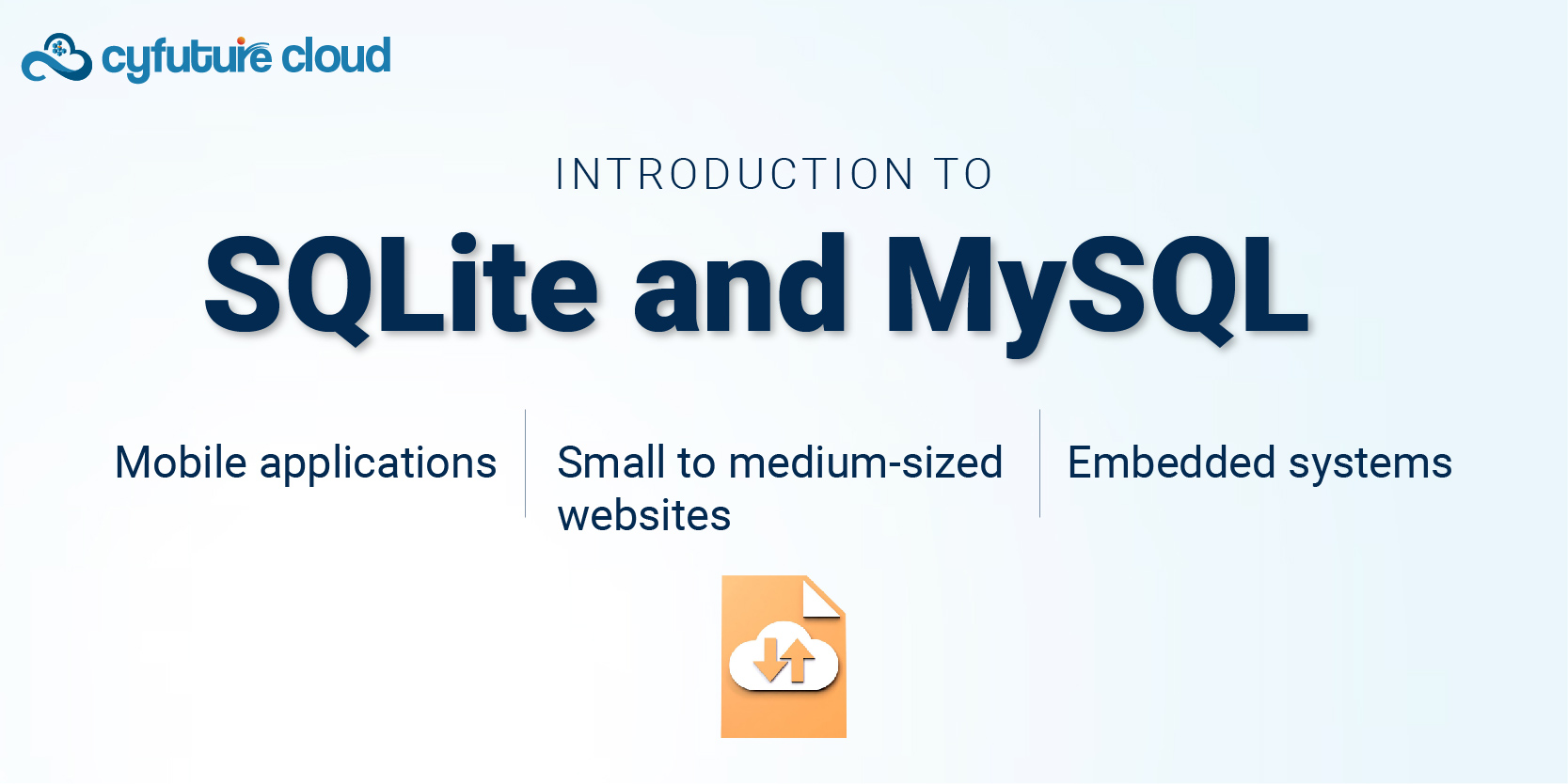
SQLite and MySQL meet different needs and requirements in database applications. Regardless of whether one needs a portable, embedded database or a large-scale, full-fledged RDBMS, SQLite and MySQL are dependable databases for their respective usages. Knowing their differences will enable you to select the right database solution.
SQLite is a client-side, server-less, embedded RDBMS. It can hold data in a single file. It is recognized for its ease of use and functionality. Due to its minimal setup and configuration requirements, SQLite is commonly used in:
- Mobile applications
- Small to medium-sized websites
- Embedded systems
MySQL is a complete RDBMS that runs in client-server mode. It is developed by Oracle Corporation and is widely used for:
- Data warehousing
It supports multi-user access and is known for its:
- Robustness
- Scalability
- Extensive feature set
Below is a detailed comparison of SQLite and MySQL across various aspects:
|
Feature |
SQLite |
MySQL |
|
Architecture |
Serverless, self-contained |
Client-server model |
|
Setup and Configuration |
Minimal setup, no configuration required |
Requires installation and configuration |
|
Storage |
Single file-based storage |
Multi-file storage with database directory |
|
Scalability |
Limited scalability, suitable for small to medium applications |
Highly scalable, suitable for large applications |
|
Concurrency |
Limited concurrency, single-writer, multi-reader |
High concurrency, supports multiple simultaneous writes |
|
Performance |
Fast for read-heavy operations, efficient for small databases |
High performance for large-scale databases, optimized for both read and write operations |
|
SQL Compliance |
Mostly compliant with SQL standards |
Fully compliant with SQL standards |
|
Transaction Support |
ACID compliant with limited transaction support |
ACID compliant with robust transaction support |
|
Security |
Basic security measures, suitable for embedded use |
Advanced security features, suitable for multi-user environments |
|
Data Types |
Dynamic typing, supports fewer data types |
Static typing, supports a wide range of data types |
|
Extensibility |
Limited extensibility, few plugins available |
Highly extensible with numerous plugins and integrations |
|
Backup and Recovery |
Simple backup with file copy |
Advanced backup and recovery options, including point-in-time recovery |
|
Community and Support |
Active community, extensive documentation |
Large community, extensive support and resources available |
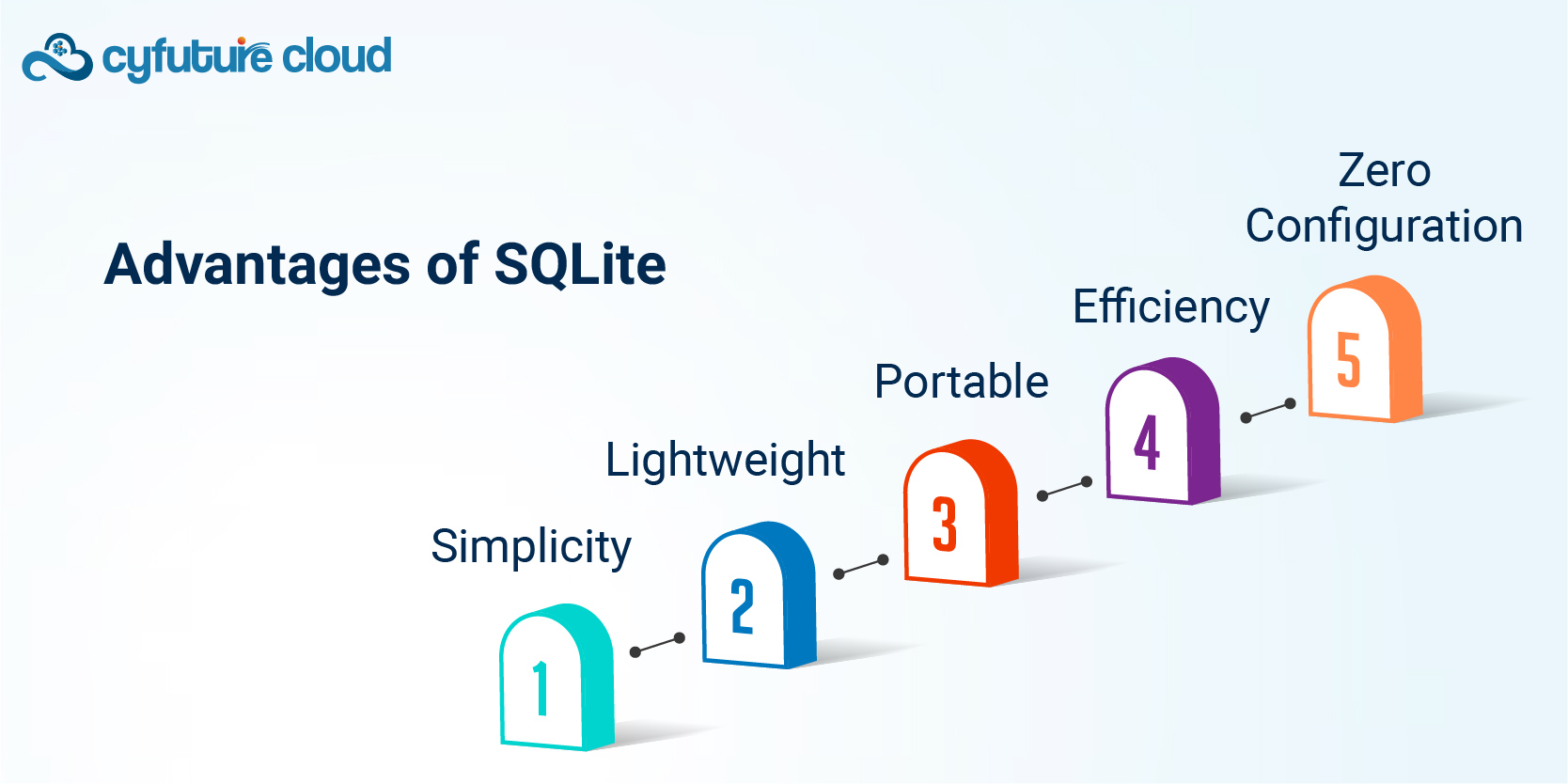
1. Simplicity
SQLite is easy to set up and use. It doesn't need a separate server process.
2. Lightweight
It has a small footprint. Thus making it ideal for applications with limited resources.
3. Portable
The database is stored in a single file. This makes it easy to transfer and deploy.
4. Efficiency
SQLite performs well for read-heavy operations and small to medium-sized databases.
5. Zero Configuration
There is no need for configuration or administration. It simplifies development and deployment.
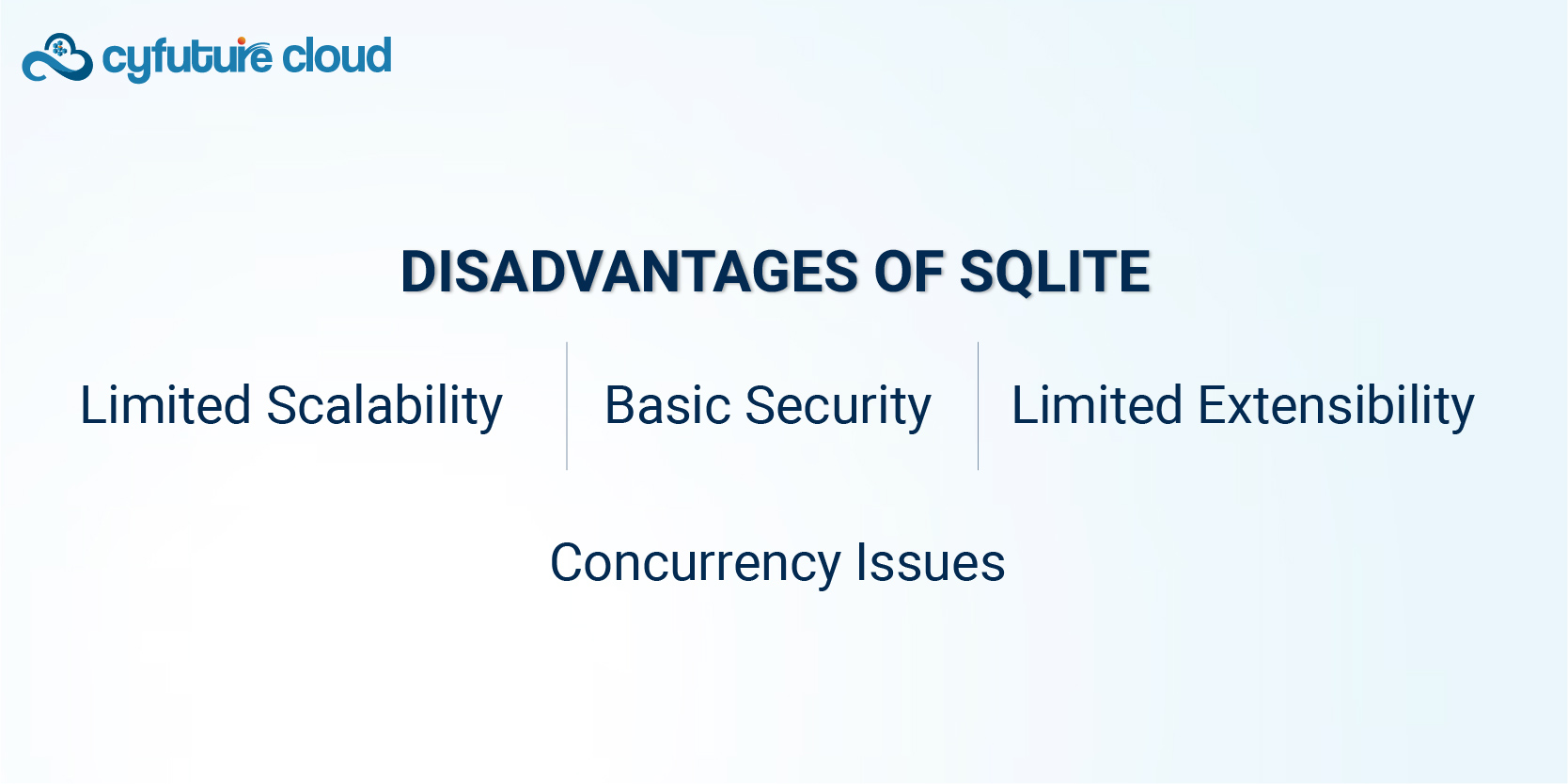
1. Limited Scalability
SQLite is not designed for high-concurrency or large-scale applications.
2. Basic Security
It lacks advanced security features. Thus making it less suitable for applications requiring robust security.
3. Limited Extensibility
There are fewer extensions and plugins available compared to more complex RDBMSs
4. Concurrency Issues
SQLite supports limited concurrent writes. It can be a bottleneck for write-intensive applications.
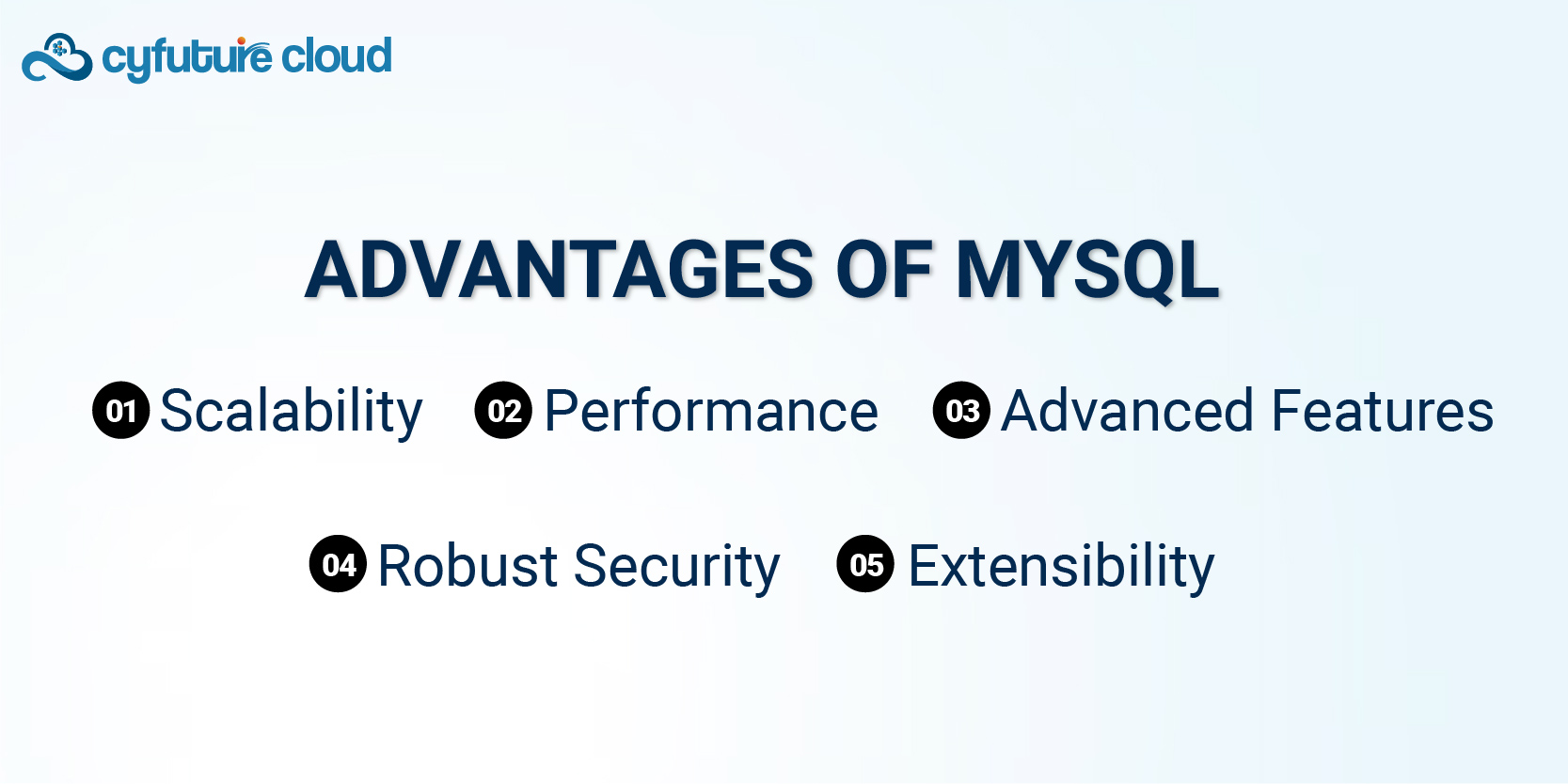
1. Scalability
MySQL is highly scalable. It can handle large-scale applications and high-concurrency environments.
2. Performance
It offers high performance for read and write operations and is optimized for large databases.
3. Advanced Features
MySQL supports advanced features like:
- Replication
- Clustering
- Partitioning
4. Robust Security
It provides robust security features, including:
- Encryption
- Authentication
5. Extensibility
MySQL is highly extensible, with numerous plugins, connectors, and third-party integrations available.
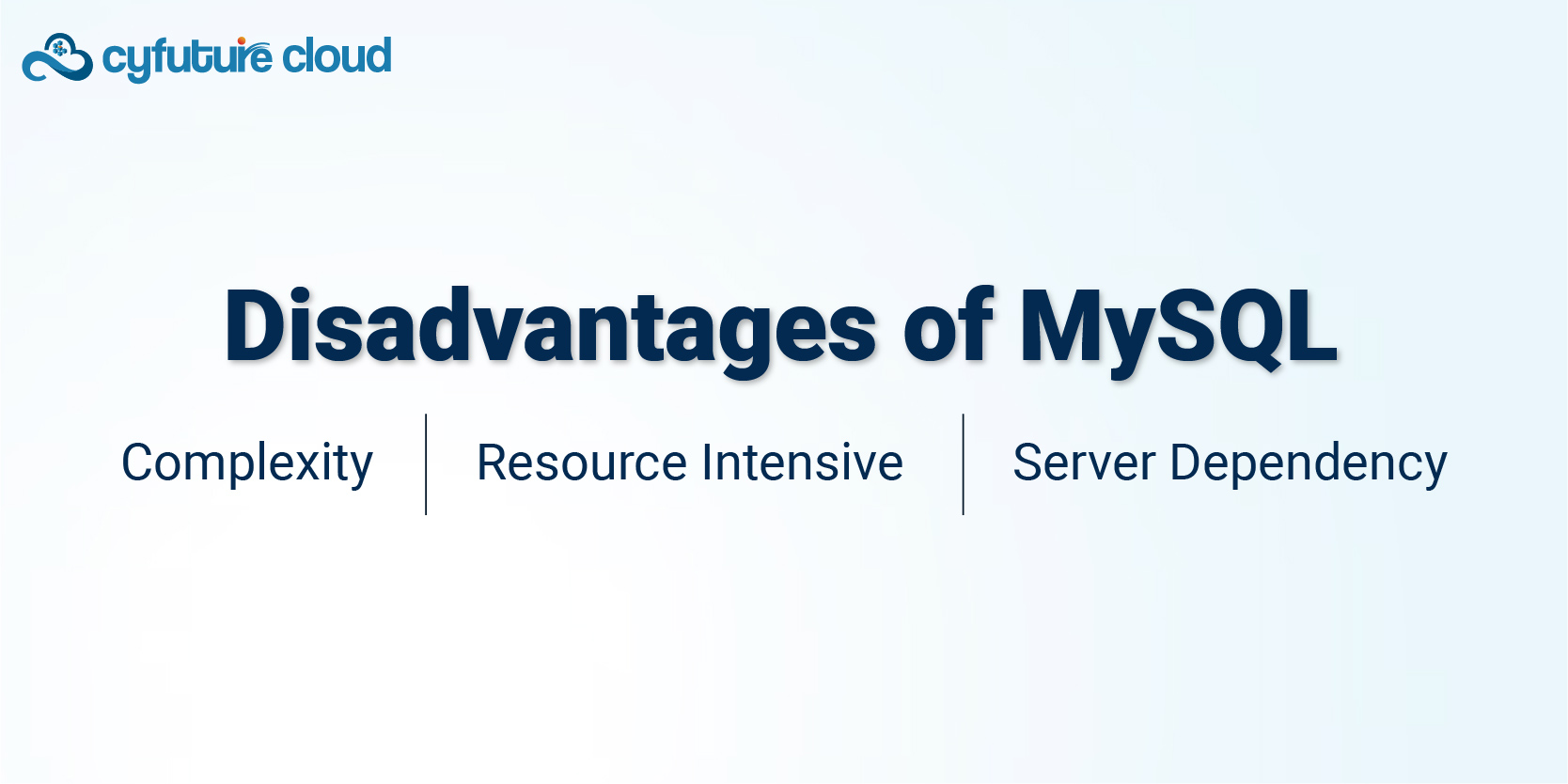
1. Complexity
MySQL requires more setup and configuration. It can be a barrier for beginners.
2. Resource Intensive
It requires more system resources. This makes it less suitable for applications with limited resources.
3. Server Dependency
MySQL operates in a client-server model, which requires a separate server process.
1. Embedded Systems
SQLite is perfect for using embedded systems and IoT devices due to its scale and capability of being independent.
2. Mobile Applications
It is widely used in mobile applications for local data storage.
3. Small to Medium Websites
SQLite is a suitable choice for websites with moderate traffic and simple data requirements.
4. Prototyping and Testing
SQLite’s simplicity and ease of use make it a good option for prototyping and testing applications.
1. Large-Scale Web Applications
MySQL is well-suited for large-scale applications with high traffic and complex data requirements.
2. Enterprise Systems
MySQL is an excellent choice for applications requiring:
- Robust features
- Security
- Scalability.
3. Data Warehousing
Its performance and scalability make it an excellent choice for data warehousing & business intelligence applications.
4. E-commerce
Due to its high concurrency and reliability, MySQL is commonly used in e-commerce platforms.
SQLite and MySQL are both robust database solutions. However, they are different in their functions and applications. SQLite is highly recommended for small to medium-scale applications, embedded systems, or applications to run on mobile devices. On the other hand, MySQL can handle large and complex Web applications, large-scale enterprise systems, and data intensive applications because of its scalability, stability and flexibility of features offered.

Let’s talk about the future, and make it happen!
By continuing to use and navigate this website, you are agreeing to the use of cookies.
Find out more


